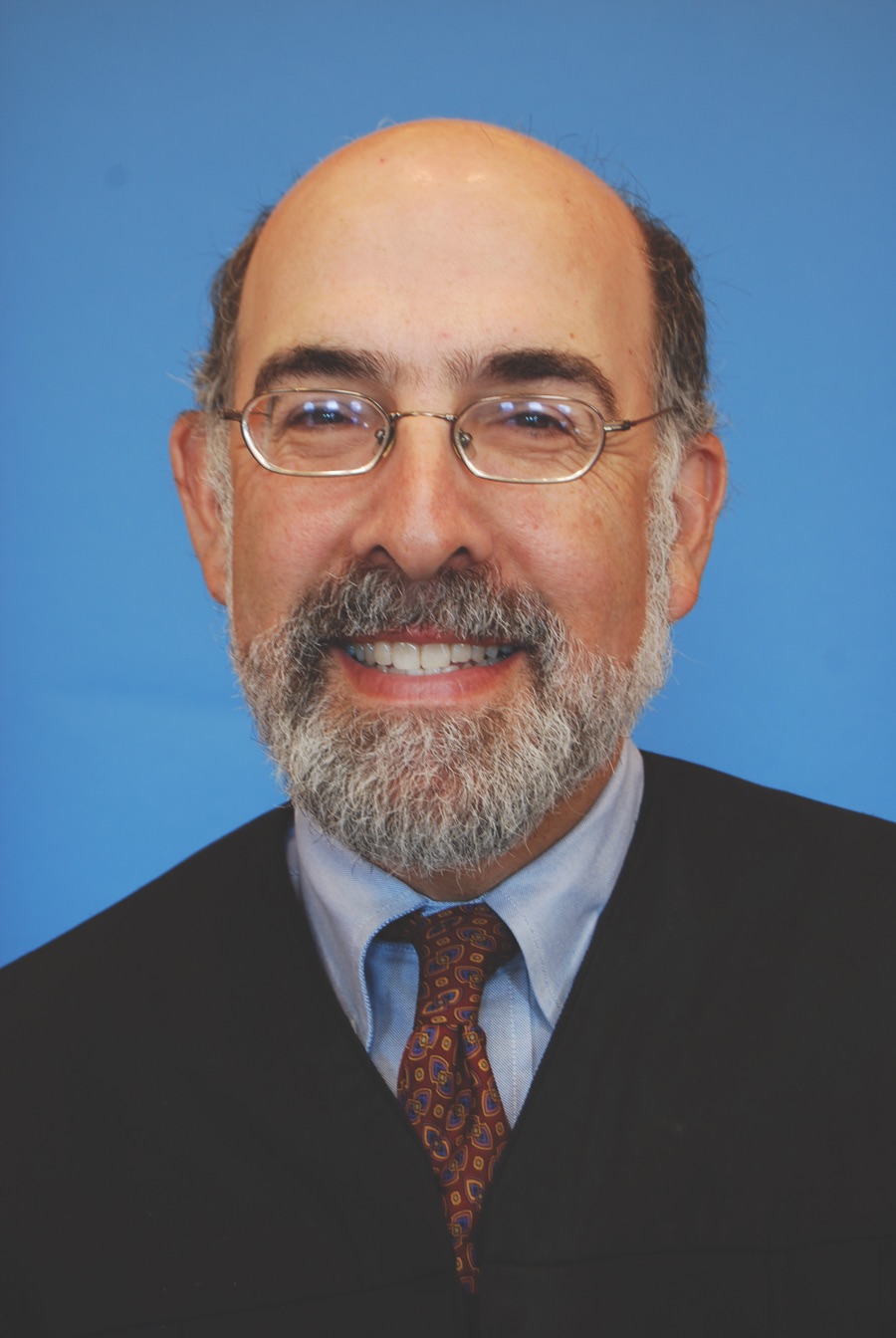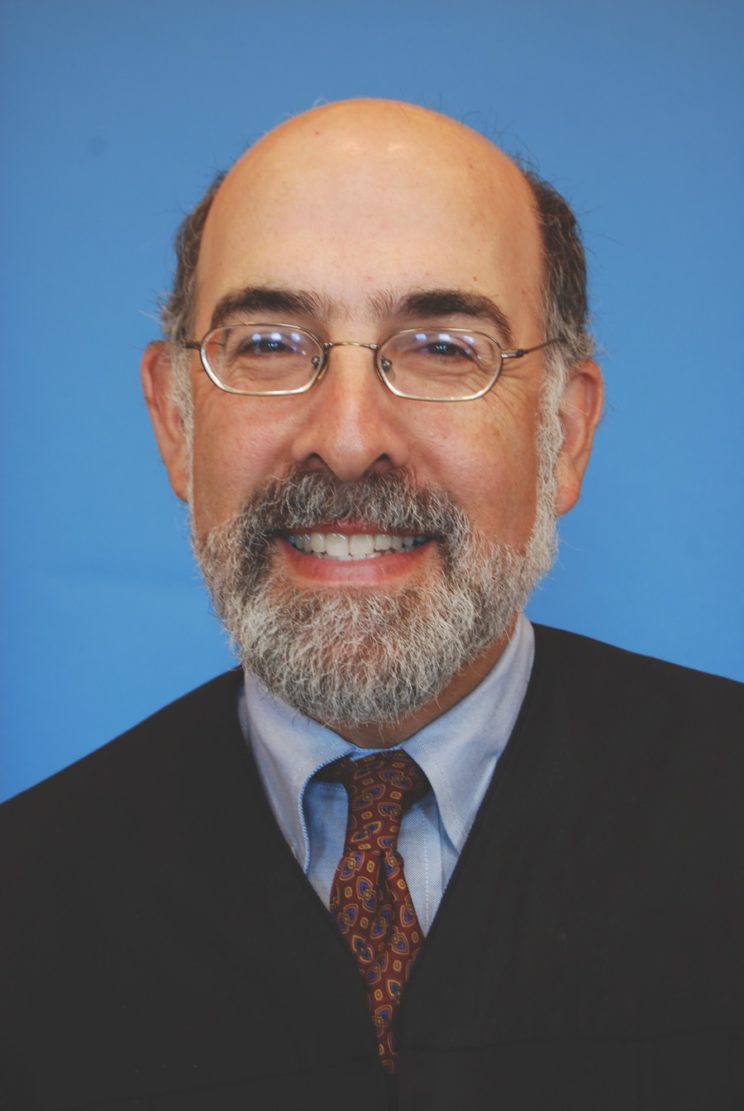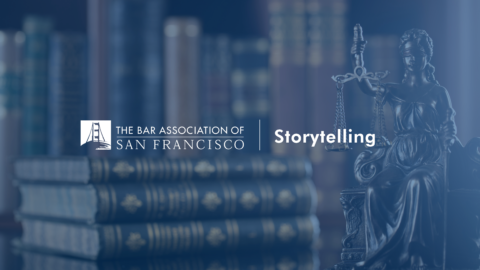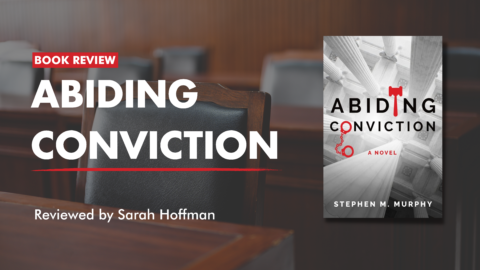
San Francisco Superior Court Judge Harold E. Kahn is a well-respected judge, who has used his knowledge and passion for the law to make a difference in our community. He has been a strong supporter of the Barristers Club and the Bar Association of San Francisco. This year, the Barristers Club is delighted to present Judge Kahn with its Tara L. Riedley Barristers Choice Award.
I recently had the pleasure of speaking with Judge Kahn about his career as a trial attorney and San Francisco Superior Court judge. Here are some of the highlights from our conversation.
From your time as a solo practitioner, is there a case that stands out as being a really interesting case?
I had one extraordinary case!
I represented DPR Construction and its founders who were sued for a variety of competition torts by the company that had previously employed the founders. When I first met the founders, DPR had about twelve employees and a few small jobs. Three years later, when the case resolved on the eve of trial, DPR had become one of the largest construction companies, not just in the Bay Area, but in the country. It had huge revenues, was doing enormous projects, and had offices throughout the United States. During the time I represented it, DPR was the fastest-growing company in the Bay Area three years in a row. So the case was challenging because my clients were extremely successful very quickly. While the plaintiff contended that the rapid success was due to tortious conduct, it was clear to me that the success was due to the talent and hard work of the founders and their employees. There were no trade secrets, proprietary information, or interference in obtaining widely publicized and highly sought-after large construction jobs. But the optics-astonishing growth-raised all kinds of suspicions, vastly increased the stakes, and made for an interesting case.
Why did you want to be a judge?
After almost twenty years as a litigator, I felt I had done everything I wanted to do as a lawyer, and the work I was doing started to feel repetitive. While all my cases were venued in the Bay Area, I did a lot of traveling outside the Bay Area to meet with clients and witnesses and to take and defend depositions. The traveling got to be very wearing. I was putting in long, exhausting days. During one deposition road trip, I decided I wanted to try something else, and shortly thereafter I applied to be a judge. I thought then-and know now-that being a judge would provide me with new learning curves and expose me to areas of the law and human behavior that I was unlikely to see in my private practice.
I loved being a lawyer, but I had come to a point where I needed a break from the long hours and constant worries about my clients. Like many lawyers, particularly those who have their own practices, I was thinking about my clients and their problems twenty-four seven. Even when I was on vacation, I did not stop thinking about how I could advance my clients’ interests. It felt like I was never off work. I would often wake up in the middle of the night and jot down ideas on how to pursue my cases. Also, I frequently fretted whether I had too much work or too little work. Trying to achieve that elusive balance of enough but not too many cases was an ever-present concern, and I usually erred on the side of too many. I had become that quintessential obsessed litigator/small businessman. When it got to the point that it felt like a grind, I looked for another legal job that I believed I was qualified to do. But giving up being a lawyer was not easy. Advocating for my clients was enormously satisfying, and often lots of fun.
Have any aspects of being a judge surprised you?
The one thing that surprised me most is that when I became a judge I no longer thought about work all the time. As a judge, with rare exceptions, as soon as I am done for the day, I stop thinking about work. However, if I have a gnawing feeling that I made a big mistake that day I will dwell on how, if at all, I can correct my error. As a judge, I have no stake in the outcome of a case. I know it may surprise many, but in the vast majority of cases I handle as a judge, I am indifferent about the result. I simply do not care who wins or loses. My job as a judge is to provide a forum for fair and impartial adjudication and to use my best judgment while adhering to all applicable rules, not to help or hinder anyone, and certainly not to root for one side or the other. The job of a judge is finite and does not intrude into my vacations or the middle of my nights. After obsessing as a litigator for many years, the fact that my mind easily and quickly turns off the work switch has been a pleasant surprise.
I am aware that many judges believe that being a judge is a high-stress job. Even when handling high-profile or high-stakes cases, I have never felt that way. As a lawyer, particularly when I had my own practice and felt the pressure of meeting payroll and clients’ sometimes unrealistic expectations, I felt very tethered to my job. Not so as a judge. For me, even when I work long hours like I did when I was in law and motion, being a judge is considerably less stressful than being a lawyer. When I see the hard-working attorneys in court, I remind myself what it was like to be a lawyer, so I won’t forget how difficult it is to zealously represent clients.
What are the most common mistakes you have seen attorneys make in your courtroom?
A troubling and unfortunately much too frequent mistake, made by both newer and experienced lawyers, is not knowing the applicable rules. There are lots of rules, both substantive and procedural, and some of the rules change often and vary among differing courts even within the Bay Area. In my view, once you step into a courtroom, you are charged with knowing the rules of the road that pertain to your case. If you are in trial, make sure you know the rules of evidence, particularly the full array of objections to evidence and how to overcome those objections. For example, know how to make or avoid a meritorious Sanchez hearsay objection. If you are making or opposing a motion, make sure you know the rules that apply to that motion such as the shifting burdens on a summary judgment motion, or not going beyond the pleadings and judicially noticeable facts on a demurrer. I also see many attorneys who have insufficient knowledge of the substantive law that applies to their case or are unaware of the latest developments in that substantive law. Each time you write a brief or go to court, ask yourself whether you are fully up-to-date on the rules. And always make sure that the cases and other authorities you are relying on are still good law.
Another common mistake is not knowing all the pertinent facts that relate to your case. Much like the key to real estate is location, location, location, the key to good advocacy is preparation, preparation, preparation. That calls for speaking with all the witnesses who are willing to speak with you and deposing those who are not, and most importantly asking the right questions and nailing down the answers. Being a litigator is hard and often exhausting work, especially when in trial. There are no shortcuts to being adequately prepared.
Another thing I see much too often is ad hominem attacks on opposing attorneys. Focus on the merits of your case, not on the personality of opposing counsel. Attorneys sometimes become so immersed in their poor relationship with opposing counsel that they bring that relationship with them into their briefs and their courtroom advocacy. Don’t. Very few cases are won by pointing out the character flaws in opposing counsel.
What advice would you give newer attorneys about preventing burnout?
Try different areas of the law. Don’t be afraid to seek a new job or ask for different work from your current employer. Inertia kicks in for all of us and then the easy thing is to do tomorrow what you did yesterday. But what you are doing today may not be enjoyable, may even be too stressful or insufficiently engaging for you at this point in your life. My recommendation is to try new things, have the courage to say “I tried this area of the law or have been at this firm or this job for a while and now I am going to try something else.” The more you learn about and are exposed to different areas of the law and different jobs, the more likely you are to find the area of the law and the job that is best suited to you at this point in your life, which is the best way I know to counter burnout. Some people are content doing the same thing for long periods of time and experience no signs of burnout. But, if you are like me, impatient and needing to do something new from time to time, seek out change. When I feel I have mastered something, boredom, a form of burnout for me, creeps in and what works best for me is to move on to another area and start from the bottom of the learning curve instead of continuing to do the same thing over and over again.
Also, it is important to have interests outside of the law and friends who are not lawyers, particularly those who care nothing about the law. It is far too easy, especially in the early years of practice, to be consumed by being a lawyer. As interesting as you may find your job and other attorneys, there is life outside of law. Explore it. Revel in it. Quite likely doing so will make you a better lawyer and a more interesting person-and may avoid or reduce burnout in the process.
I understand you enjoy going to World’s Fairs and the Olympics. Is there something that interests you about those events?
I love the feeling of the world coming together and showing our commonality and our differences as well as our best ideas and strongest competitors. Even in the age of the Internet, the world is a very diverse place. Particularly with World’s Fairs, you get to see little bits of culture from all around the planet. There is also a sense of good feeling; a sense of people working together to make for a better life for all instead of the destruction and hatred that fills so much of our daily news. Of course, in the Olympics, there is strenuous competition among athletes and countries, but it is almost always competition to be the best, not to demean or reduce the other competitors. When I go to World’s Fairs and Olympics, I enjoy meeting people from faraway places and hearing their stories. I like to find out why they came to be at this place, what their lives are like in their home countries, and what they think of Americans and our ways. It is my way of accessing the incredible variety of our world. I have met many interesting people at both Olympics and World’s Fairs and hope to continue doing so.
About the Author:
Courtney M. Brown is a litigator at the Law Offices of Mary Catherine Wiederhold and is a board member for the Barristers Club. Her practice focuses on representing tenants facing a variety of issues including wrongful eviction, housing violations, and fire-related losses.




